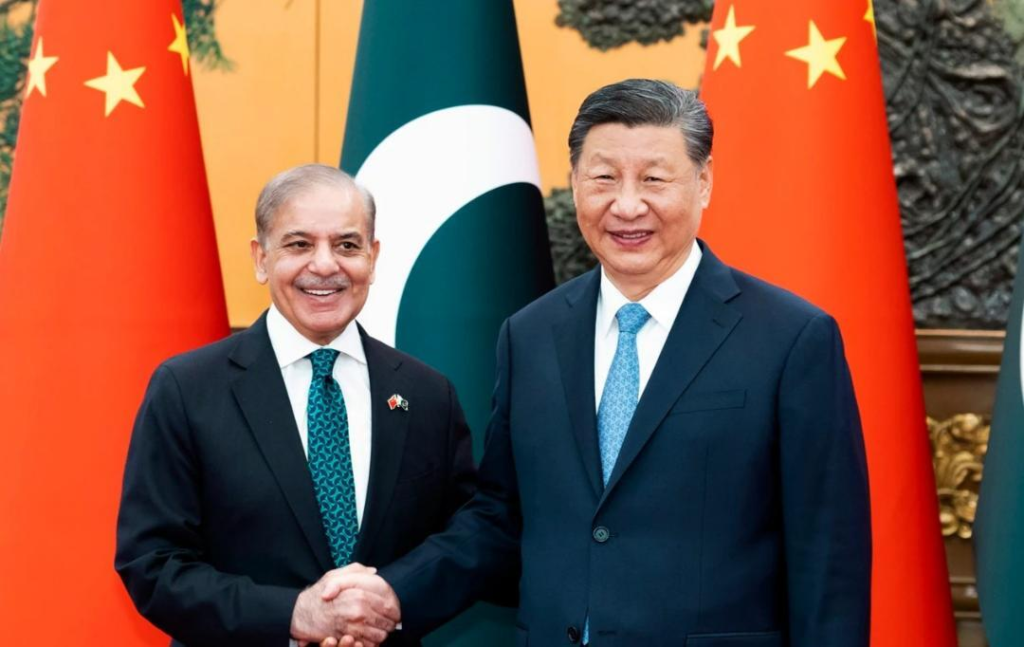Strengthening ties through healthcare innovation: Pakistan and China take a significant step toward building a first-of-its-kind medical city in Karachi.
China and Pakistan have long shared a strategic partnership rooted in economic, political, and cultural collaboration. The proposed $1 billion investment by a Chinese delegation to establish a medical city in Karachi’s Dhabeji Economic Zone is yet another milestone in their enduring relationship.
This medical city aims to create Pakistan’s first fully integrated pharmaceutical and medical ecosystem, marking a transformative chapter for the country’s healthcare and economic sectors.
This ambitious project also underscores China’s growing role as a key economic player in South Asia. By investing in critical infrastructure projects like the medical city in Karachi, China not only strengthens its bilateral relationship with Pakistan but also reinforces its influence in the region.
Such strategic investments align with Beijing’s long-term vision under the Belt and Road Initiative (BRI), creating opportunities for shared prosperity while ensuring mutual economic benefits.
Read : Pakistan International Airlines to Resume US Flights After 7 Years of Suspension
For Pakistan, this collaboration serves as a lifeline to revitalize its healthcare sector and diversify its economy, further cementing its position as a trusted partner in China’s global ambitions.
Pakistan’s first medical city in Karachi
The medical city, proposed for Karachi’s Dhabeji Economic Zone, represents a bold vision to address Pakistan’s healthcare challenges while bolstering its economy.
Read : The List of Top 20 Countries in Debt to China
This fully integrated ecosystem will house state-of-the-art facilities, including hospitals, pharmaceutical production units, and research centers. The project’s strategic location near Karachi, Pakistan’s financial capital, ensures access to skilled labor, logistical networks, and international markets.
China’s decision to invest in this project stems from its commitment to aiding its ally’s development and fostering deeper economic ties.

By creating a medical city, Pakistan can reduce its reliance on imported medicines and advanced medical technologies, paving the way for self-sufficiency in the healthcare sector. This move could also enhance local job creation, attract skilled professionals, and boost healthcare standards in the country.
A Milestone in Sino-Pakistani Relations
The announcement of this investment highlights the deep-rooted cooperation between China and Pakistan. Over the years, this partnership has manifested in various development initiatives, including the China-Pakistan Economic Corridor (CPEC), which has been a game-changer for Pakistan’s infrastructure and energy sectors.
President Asif Ali Zardari’s meeting with the Chinese delegation reinforced this partnership, with both sides emphasizing the importance of economic and trade cooperation. The project aligns with China’s Belt and Road Initiative (BRI) strategy, demonstrating its commitment to fostering regional development and connectivity.
Additionally, the Sindh government has introduced Chinese language courses to bridge cultural and linguistic gaps, further strengthening ties between the two nations. This initiative underscores Pakistan’s dedication to accommodating Chinese investments and integrating Chinese expertise into its developmental framework.
Beyond Healthcare: Expanding Economic Horizons
While the medical city is the centerpiece of this investment, the Chinese delegation expressed interest in other sectors, including agriculture, livestock, energy, transport, and manufacturing. These potential investments signify China’s multifaceted approach to supporting Pakistan’s economic growth.

For instance, the agricultural sector, a cornerstone of Pakistan’s economy, could benefit significantly from Chinese technology and expertise. Similarly, investment in renewable energy and transport infrastructure would address critical gaps, enhancing Pakistan’s economic competitiveness.
The Dhabeji Economic Zone, managed by the Korangi Association of Trade and Industry, provides a conducive environment for these ventures. Equipped with robust infrastructure and strategic positioning, the zone represents a vital node in Pakistan’s economic landscape, ready to host a diverse range of industries.
China’s proposed $1 billion investment in Karachi’s medical city marks a significant step in Pakistan’s journey toward healthcare modernization and economic growth. Beyond its immediate benefits, the project symbolizes the enduring friendship between the two nations and their shared vision for regional development.

